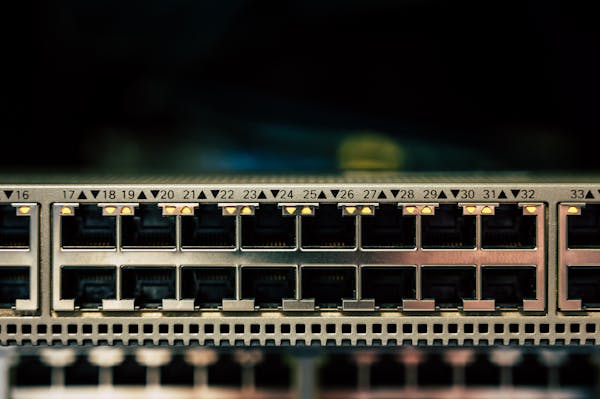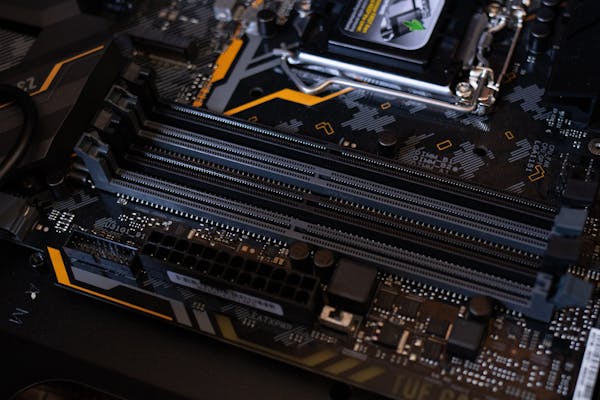
Understanding 4G Rotating Proxies
As internet privacy becomes paramount, mobile 4G proxies have gained prominence for maintaining online privacy.
Defining 4G Rotating Proxies
These proxies employ mobile networks to provide changing IPs to users. Unlike static proxies, they offer dynamic IP rotation, reducing detection risks.
Source article: rebrand.ly
Operational Dynamics
Upon activation, users receive a 4G network IP. These IPs are switched periodically, hindering surveillance.
Benefits of Mobile 4G Proxies
- Improved Privacy: Dynamic IP rotation obscures user identity.
- Accessing Region-Locked Content: Changing IPs enable viewing of geo-blocked sites.
- Lowered Detection Rates: Frequent IP changes circumvent anti-bot measures.
Applications of 4G Rotating Proxies
- Information Gathering: Rotating IPs prevent scraping blocks.proxies reduce account bans.
- Ad Verification: Changing IPs monitor competitor strategies.
- o Consider}
In choosing a proxy service, consider:
- Number of Available IPs: A larger pool reduces repetition.
- IP Change Intervals: Determine if the service rotates per request.
- Regional Availability: Access to multiple regions aids in geo-testing.
Potential Challenges
- Cost Implications: 4G proxies often have higher costs compared to other types.
- Connection Stability: Mobile networks may affect consistency.
- Compliance Issues: Ensure usage aligns with laws.
Final Thoughts
4G rotating proxies enhance online privacy, establishing their importance in today’s digital age.
Exploring the Technical Mechanisms of Mobile 4G Proxies
In the realm of internet privacy, mobile 4G proxies have become essential components for bypassing geo-restrictions.
An Overview of 4G Rotating Proxies
4G rotating proxies leverage cellular data connections to rotate IP addresses to users. Unlike static proxies, they rotate IPs after set intervals, reducing detection risks.
How Do They Work?
Upon connection, a dynamic IP from a mobile network is provided. These IPs are switched periodically, making tracking difficult.
Why Opt for 4G Rotating Proxies
- Enhanced Anonymity: Dynamic IP rotation masks real IP addresses.
- Overcoming Location Barriers: Changing IPs facilitate unrestricted browsing.
- Reduced IP Bans: Frequent IP changes avoid detection systems.
Practical Implementations
- Data Extraction: Rotating IPs ensure continuous data collection.
- Social Media Management: Dynamic proxies facilitate automation.
- Marketing Research: Changing IPs validate ad placements.
Choosing the Right Proxy Service
When opting for a 4G rotating proxy, consider:
- Diversity of IP Addresses: A larger pool reduces repetition.
- Rotation Frequency: Determine if the service has fixed durations.
- Geographical Coverage: Access to multiple regions broadens usability.
Considerations Before Use
- Cost Implications: 4G proxies may be pricier compared to other types.
- Connection Stability: Mobile networks might experience fluctuations.
- Regulatory Concerns: Ensure usage respects terms of service.
Summing Up
4G rotating proxies enhance online privacy, making them invaluable in today’s digital age.
The evolving internet ecosystem, remaining private and get around limitations has become more necessary than ever. Businesses, marketers, and developers often turn to proxy servers to change their IPs. Among these, 4G rotating proxies have become the go-to solution.
How do they stack up against other options like residential proxies? Let’s dive deep.
== What is a 4G Rotating Proxy?
A 4G rotating proxy is a proxy that relays requests through real mobile networks. These proxies rotate IPs at custom timeframes or upon request, emulating human behavior and eliminating the risk of bans or blocks.
== Main Proxy Types
Let’s summarize the key proxy types before comparing:
1. **Datacenter Proxies**
– High-speed and cheap, but easily detectable.
2. **Residential Proxies**
– Use IPs assigned to real homes. More reliable, but slower and costlier.
3. **4G Mobile Proxies**
– Use real SIMs on LTE networks. Best for scraping, bots, social media.
4. **SOCKS5 Proxies**
– Protocol-based, flexible, used for various apps, not just HTTP.
== Comparison Table
| Feature | 4G Rotating Proxies | Datacenter Proxies | Residential Proxies | SOCKS5 Proxies |
|————————|———————|———————|———————|—————-|
| IP Source | Mobile Network (SIM)| Data Centers | Home IPs | Varies |
| Rotation | Yes (Frequent) | Sometimes | Optional | Manual |
| Ban Resistance | High | Low | Medium | Depends |
| Speed | Medium | High | Low-Medium | High |
| Price | High | Low | Medium | Low-Medium |
| Target Use | Social, Ads, Bots | General Scraping | E-commerce, Research| General |
| Block Detection | Low | High | Medium | Medium |
== Technical Advantages of 4G Rotating Proxies
Why choose 4G over anything else?
– **Real Device Trust**: Websites trust mobile IPs more than others due to carrier NAT and wide user pools.
– **Shared Reputation**: IPs are shared across many users, making banning a single user risky.
– **Geo-targeted Mobile Carriers**: Rotate between networks in real U.S. cities or countries.
– **Dynamic Rotation**: Can rotate every few minutes or after each request.
– **Bypasses Captchas**: Mobile IPs are less likely to trigger captchas or challenge verifications.
== Where 4G Proxies Win
Let’s cut to the chase— if you’re scraping Google or LinkedIn, nothing works better than a solid 4G proxy.
– Facebook and Reddit limit data center abuse.
– Web scraping? You’ll face fewer issues.
– Ads management across banned zones? Done.
== Where They Fall Short
– **Cost**: They’re not cheap.
– **Speed**: Slower than static datacenter options.
– **Limited Threads**: Some providers limit concurrent usage.
== SOCKS5 vs 4G: Protocol vs Behavior
If you need raw protocol-level control, SOCKS5 is your friend. But they don’t have native rotation.

| Attribute | 4G Proxy | SOCKS5 Proxy |
|———————|——————–|——————–|
| Protocol Type | HTTP/HTTPS | SOCKS5 (All apps) |
| Rotation | Yes | Manual |
| IP Trust Level | Very High | Medium |
| Use Cases | Social, Ads, Bots | Torrenting, Apps |
== Use Cases Side-by-Side
**4G Rotating Proxies:**
– Social Media Management
– Mobile Ad Verification
– SEO Scraping
– Sneaker Bots / E-com Testing
– Marketplace Automation
**Datacenter Proxies:**
– High-volume scraping (non-sensitive)
– Speed-demanding tasks
– Price-conscious campaigns
**Residential Proxies:**
– E-com price intelligence
– Research tools
– CAPTCHA-heavy targets
**SOCKS5 Proxies:**
– Application-level traffic routing
– Anonymity over torrents
– Bypassing firewalls
== How to Choose the Right One?
Each proxy has a time and place. Here’s how to choose:
– Need speed? Go datacenter.
– Need trust and stealth? Go 4G mobile.
– Need app-level routing? Go SOCKS5.
– Need wide IP pools without rotation? Try residential.
== Future of 4G Rotating Proxies
With AI detection systems growing smarter, only mobile proxies are keeping up. We’re seeing:
– 5G proxy rollouts in testing
– Smarter rotation algorithms
– Integration with automation platforms like Jarvee, NextPost, Puppeteer
== Final Verdict
If you’re serious about anonymity, 4G rotating proxies are your best bet. For any campaign that’s running multiple accounts, it’s worth the investment.
== Spintax Conclusion
If you’re testing products or scraping competitors, investing in the right proxy is not optional anymore.
They come with a premium, but the results speak for themselves.
https://www.fortinet.com/resources/cyberglossary/proxy-server
https://en.wikipedia.org/wiki/Proxy_server
https://surfshark.com/blog/proxy-server
